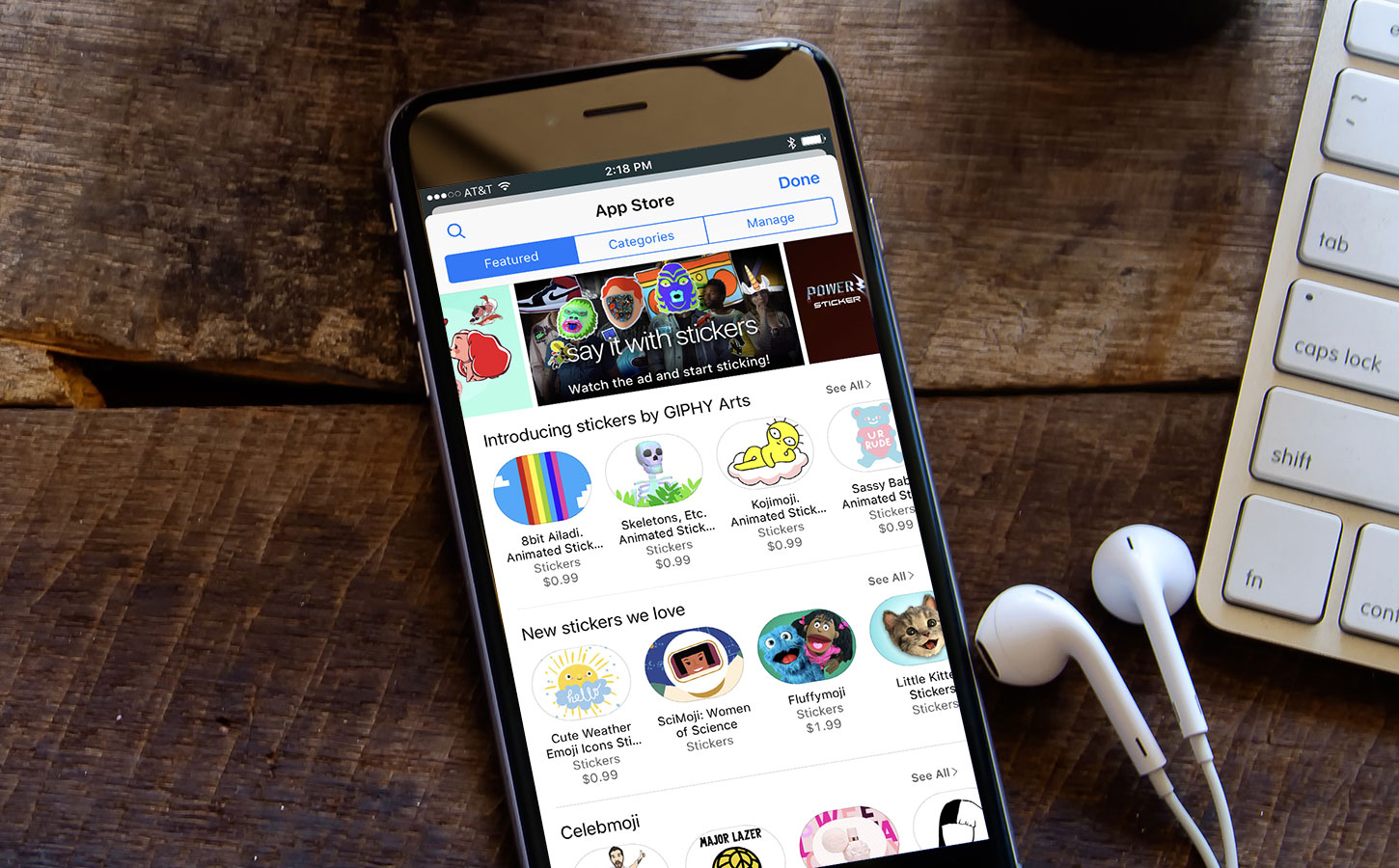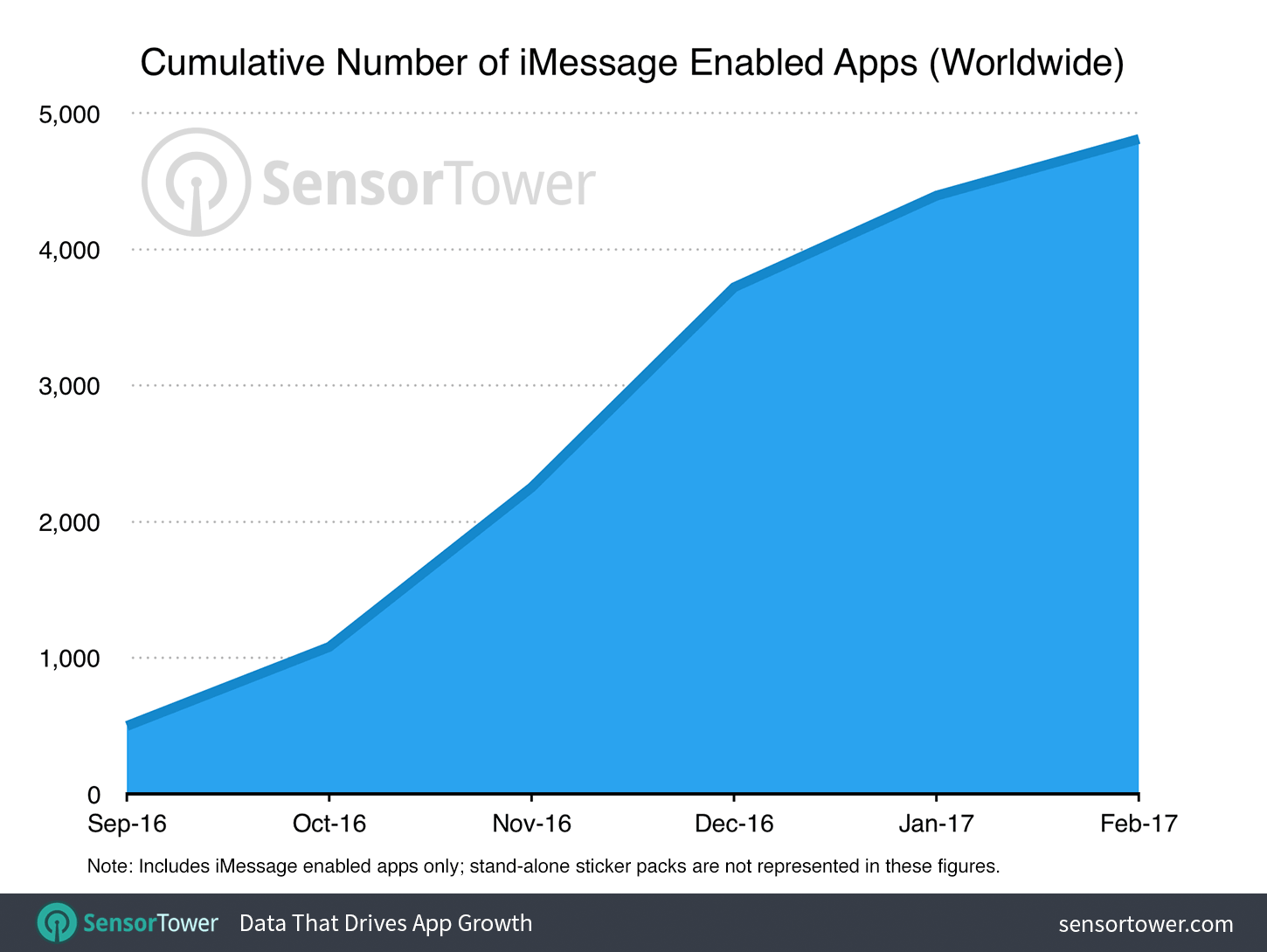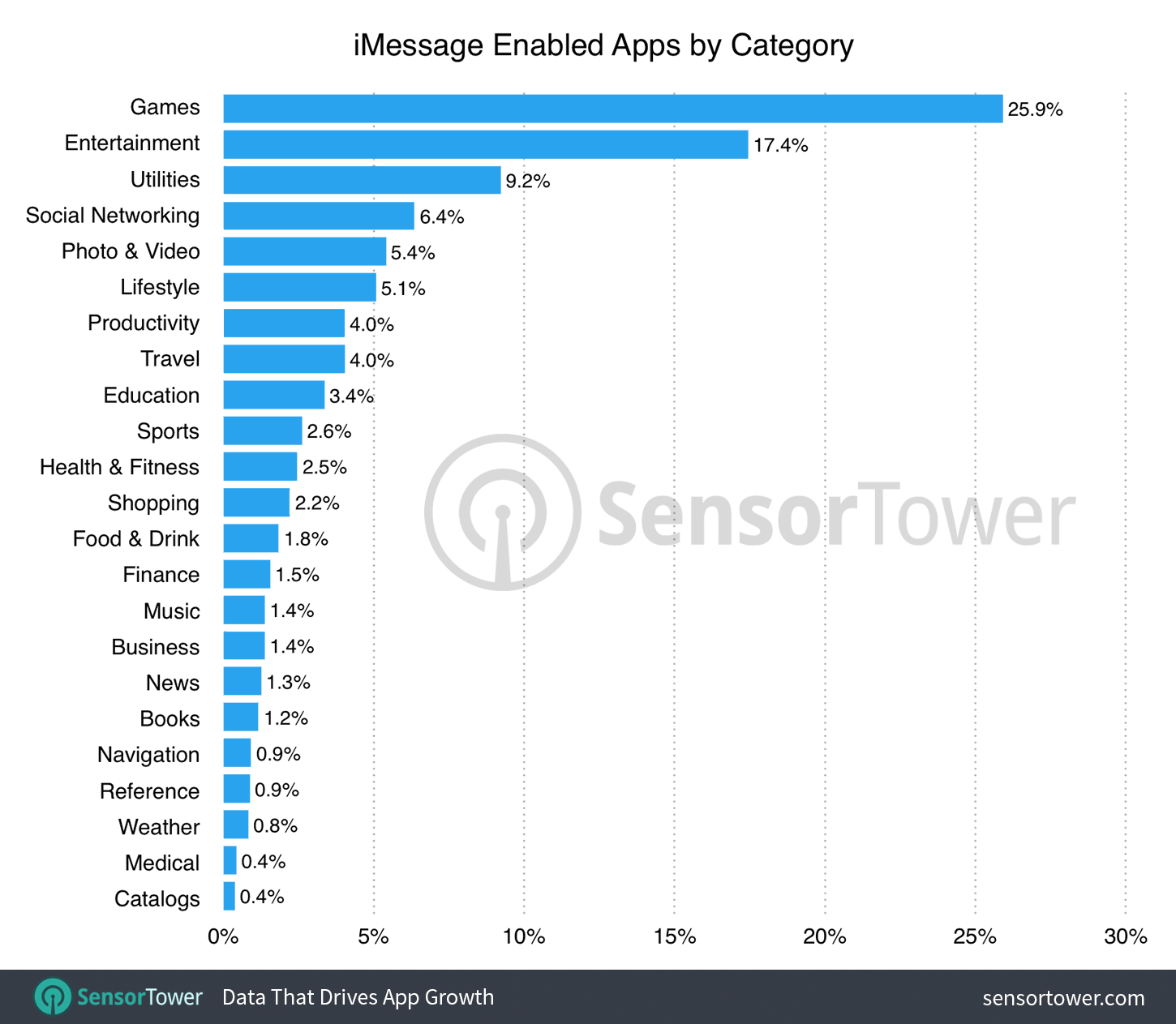STORE INTELLIGENCE · DANIEL KUO · MARCH 2017
iMessage App Store Nears 5,000 Apps After Six Months
Sensor Tower data shows the breakdown of iMessage enabled apps since its launch in September 2016.

When it launched six months ago on September 13, 2016, the buzz around the iMessage App Store was inescapable. Apple's bold foray into the realm of multifaceted chat apps a la LINE and WeChat was met with excitement on behalf of iOS developers and close scrutiny by analysts (including Sensor Tower).
Now that the dust has settled, we decided to see what the numbers have to say about how developers are adopting the new platform-within-a-platform. So far, nearly 5,000 apps have either added or launched with iMessage compatibility according to our App Intelligence data—a figure that equals the number of iOS apps released during the first year of the App Store back in 2008.
An Initial Surge Subsides

Within the first 10 days of the iMessage App Store's launch, our data revealed that the number of iMessage enabled apps had reached 400, not accounting for stand-alone sticker packs. As the chart above shows, that number continued to increase at an impressive rate in the subsequent two months.
Between its launch month of September and the end of October, the number of iMessage enabled apps had grown by approximately 116 percent to nearly 1,100. A month later, the number had grown by 108 percent to approximately 2,250.
By December, the month-over-month growth rate had slowed to 65 percent, with slightly more than 3,700 iMessage enabled apps available worldwide. This growth slowed further still in the first two months of this year, at approximately 18 percent between December and January and 9 percent between January and February, typically the slowest months of app releases overall.
That said, based on month-to-date performance in March, we see the release cadence for iMessage enabled apps matching February and continuing to grow at a steady pace.
Games Lead Enabled Apps

Looking at the breakdown of the App Store as a whole, it's not surprising to see its category makeup reflected within the iMessage store. Games make up the largest percentage of iMessage enabled apps released thus far at nearly 26 percent. It's worth noting that, in many cases, their iMessage support has come in the form of stickers featuring their characters and other IP.
Outside of games, we show Entertainment as accounting for about 17 percent of enabled apps released to date, followed by Utilities (9.2 percent), Social Networking (6.4 percent), and Photo & Video (5.4 percent) to round out the top five largest categories of iMessage apps. Shopping, which we would expect to be larger as it naturally lends itself to sharing, is actually the 12th largest category overall.
All Eyes on WWDC
Any new platform will see an initial surge in offerings due to the aforementioned excitement, rallying cries from the platform holder, and the associated rush by developers to ensure that they're capitalizing on (what they hope will be) the next big thing. The real test for the iMessage App Store's catalog will be how its growth looks for the rest of its first year, be for now we see its catalog expanding at a steady pace.
It should be noted that the reach of iMessage enabled apps to date has been impressive, adding approximately 148 million users last month alone. While they represent only 0.2 percent of all apps on the App Store, they accounted for 7 percent of downloads in February.
Needless to say, we'll be continuing to monitor how the iMessage App Store grows and evolves in the coming months as iOS 11 nears and possibly brings with it a slew of changes designed to make discovering and using iMessage enabled apps easier for end users. We'll likely learn more about any such plans in June at Apple's Worldwide Developer Conference.


